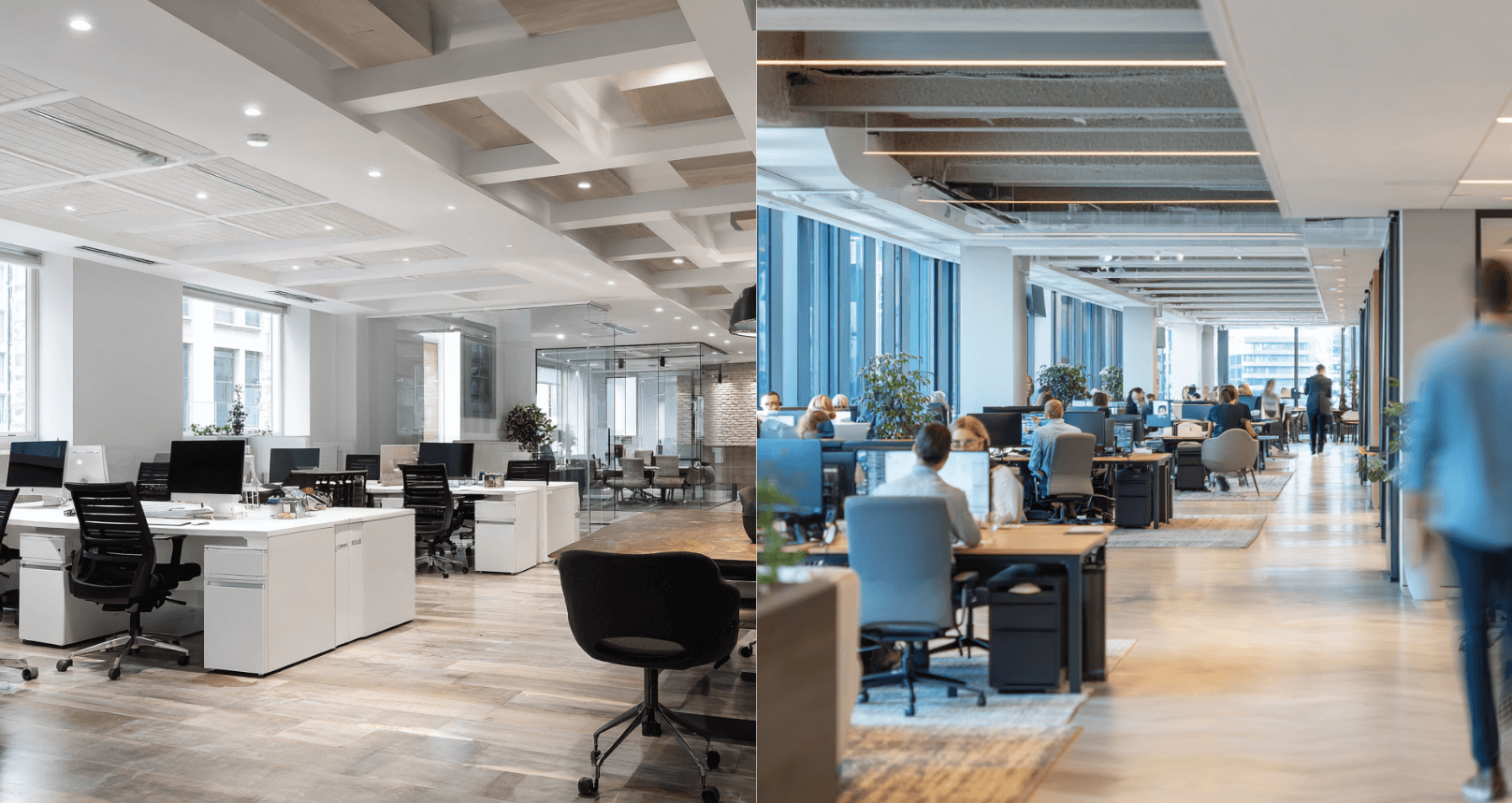Most employees expect new workplace tech — but not at the expense of privacy
Employees see tech as a way to create better, seamless workplace experiences, just not at the expense of privacy.

Employees see tech as a way to create better, seamless workplace experiences. And they’re ready to embrace new tech in their offices. They just don’t want to compromise their privacy for it.
This rings true according to 1,000+ employees surveyed for our Employee Insights on Hybrid Work Report.
Findings from our survey shed light on how employees are beginning to define their idea of the workplace now that offices are coming back online.
Employees understand that adopting new technologies is necessary to make hybrid work. From the conventional (like Zoom) to the borderline surreal (the metaverse), technology has made it possible to work from anywhere — yet stay connected. These same technologies (and more) can also help workplace leaders overcome the challenges of an era where the office is essentially optional.
But which technologies you choose matters. Privacy was ranked by employees as the number one feature of the smarter workplace.

Nearly 60% of all respondents also said they’d feel uncomfortable in the workplace if employers used camera-based technology to monitor utilization. This poses a challenge for workplace leaders looking to make sense of the new workplace. With hybrid work comes this constant flow of confusion around when employees come to the office, how often, and for what reason.
Technology that measures how people use your workplace can bring valuable clarity to your decision making. But the wrong technology can push employees away. It’s the challenge of every workplace leader to find a non-intrusive way to measure how space is used.
“Really, the question that every company should ask themselves is this — 'What do I need this data for?’” asks Twilio Sr. Manager of Global Workplace Operations. “‘And does the identity of the individuals weigh into the data that will inform impactful change to what we do, how we do it, and why we do it?'"
Fortunately, technology does exist that provides objective data on how people use space - without compromising privacy. Below is a GIF of the Density San Francisco office during our product team’s full-day offsite last fall.
The above is one of the core features of Density — Heatmaps. Heatmaps unearth the story behind our space — how we vote with our feet and where we linger, collide, wander, and focus.
And it’s all done without capturing any personal identifiable information. Simply put, Density sensors are not cameras. We use a millimeter-wave radar sensor because it can return accurate results without the capability of facial recognition or other analysis techniques that invade privacy.
Technology like ours is making it possible for workplace leaders to create seamless employee experiences.

This is exactly what employees want. Unfortunately, our research reveals that many companies aren’t responding to employees’ demands as quickly as they need to.
According to your survey, only one-third of companies offer flexibility, while 59% of employees prioritize it. It’s up to employers to respond to how the future of work looks or risk losing their employees to companies that better meet their needs.
See what else employees see as the benefits and challenges of hybrid work in our Employee Insights on Hybrid Work Report.
Key Takeaways

DisruptCRE founder shares how corporate real estate is changing
Companies are moving employees from underutilized offices into "space as a service” options with utilization data.
Watch now
Half of offices are empty but you still can’t find a meeting room
Employees waste up to 30 minutes a day looking for a meeting room to meet in workplaces.
Read moreMost recent

Space waste: The industry’s naughty and nice list
Our sensors spilled the beans: What industry is winning, who's wasting and who's hogging your office real estate.
.png)
Improve your occupancy sensor RFP with our best practice guide
Discover essential questions to simplify your occupancy sensor RFP process and confidently choose the right vendor.

Does RTO actually work? A webinar debate with the data
Density’s RTO data sparks debate between a pro-office CEO and a remote-friendly workplace strategist.

A workplace love story: Phone booth meets sensor
Phone booths are booming—and occupancy sensors help companies manage and measure them with ease.
Explore other Density Products
Atlas for Workplace
Insights for the workplace that help you cut costs and deliver better spaces.
Learn more